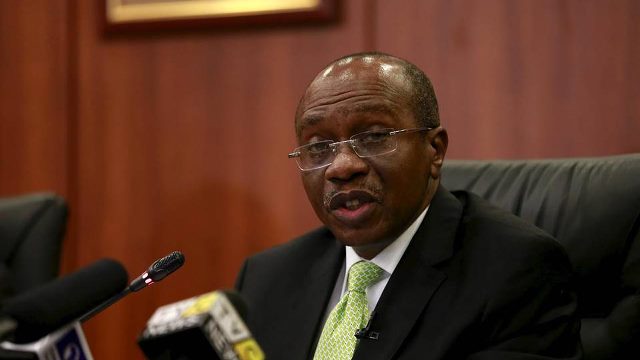The Central Bank of Nigeria (CBN), in collaboration with the Bankers Committee and the Nigerian Postal Service (NIPOST), will set up a Micro Finance Bank (MFB) to enhance financial inclusion and credit to the agricultural sector as well as small and medium scale enterprises (SME). CBN Governor Godwin Emefiele disclosed this yesterday in Lagos at the opening ceremony of the 10th annual Bankers’ Committee retreat.
Emefiele explained that the national MFB slated for launch next month would leverage the existing NIPOST presence in the 774 local government areas of the country and aid the CBN and the bankers’ committee’s effort in accessing the Anchor borrowers’ fund, SME fund and other initiatives tailored towards SMEs, farmers and the CBN’s financial inclusion drive.
He also said this was to help ensure the success of the N26 billion set aside to finance agric businesses and other small informal businesses under the Agribusiness/Small and Medium Enterprises Investment Scheme (AGSMEIS).
The CBN governor said the apex bank, knowing the key role that power plays in the economy, had invested N213 billion to revitalise the sector.
Emefiele said, “Today, the central bank has N220 billion that is set aside under the micro small and medium enterprise fund. Nigerians were happy when they heard that the banks, out of their magnanimity, decided that five per cent of their profits would be set aside to support agric business and SMEs.
“We have over N60 billion sitting in the banks currently in CBN and why should that money be sitting in CBN and just be earning Treasury bill rates. It is meant for the micro small and medium enterprises and for the weak in our economy that would not ordinarily have access to knock at your door.
“That was why we voted last week at bankers’ dinner that a national micro finance bank would kick-off by January 2019. In order to collectively address the challenges militating against the achievements of the objective of the AGSMEIS initiative, the CBN is considering the proposal for the establishment of the national microfinance bank, which would leverage on the Nigerian Postal Service presence in 774 local government areas across the country.
“We have called on NIPOST and they have agreed to join us in this. They would provide their facilities in 774 local governments and this would be their own contribution by way of equity into the establishment of the national MFB. We would provide the infrastructure and this MFB would be available in 774 local government across the nation.”
He said he expected the bankers committee and NIPOST to have representation on the board of the proposed national MFB.
“The task and responsibility to improve our rural communities lies in our hands and we believe strongly that using this infrastructure of the national MFB, we would get to achieve the objective of creating jobs, and enhance the skills of our people in our rural communities, improve and grow the economy so we can achieve the development that we so badly require in Nigeria today,” Emefiele said.
He said the MFB would be expected to engage in strategic partnership with NIPOST, with the aim of leveraging NIPOST’s locations, while the NIRSAL, which is owned by the CBN, would be expected to bring its experience in financing low income entrepreneurs and de-risking credit originated by the national MFB by providing guarantee in line with its mandate.
On investments towards power, he said, “In collaboration with the government, the Nigerian Electricity Market Stabilisation Facility was set up to rescue and reset the electricity industry for privatisation in 2015. The CBN, in line with the proposal establishing the Nigerian Electricity Market Stabilisation Facility, invested N213 billion in it. The aim was to provide refinance for the participating banks and also to ensure that necessary bank guarantees are put in place to back the contracts for the industry.
“The Bankers’ Committee played the role of first line financiers, ensuring that the facility is repaid. Through the facility the Distribution companies have been able to post LCs in favour of NBET. Other outcomes are the purchase of over 700,000 meters, purchase and installation of 500 transformers, recovery of 1,000 megawatts and increase in gas supply commitments. Several contracts were also












